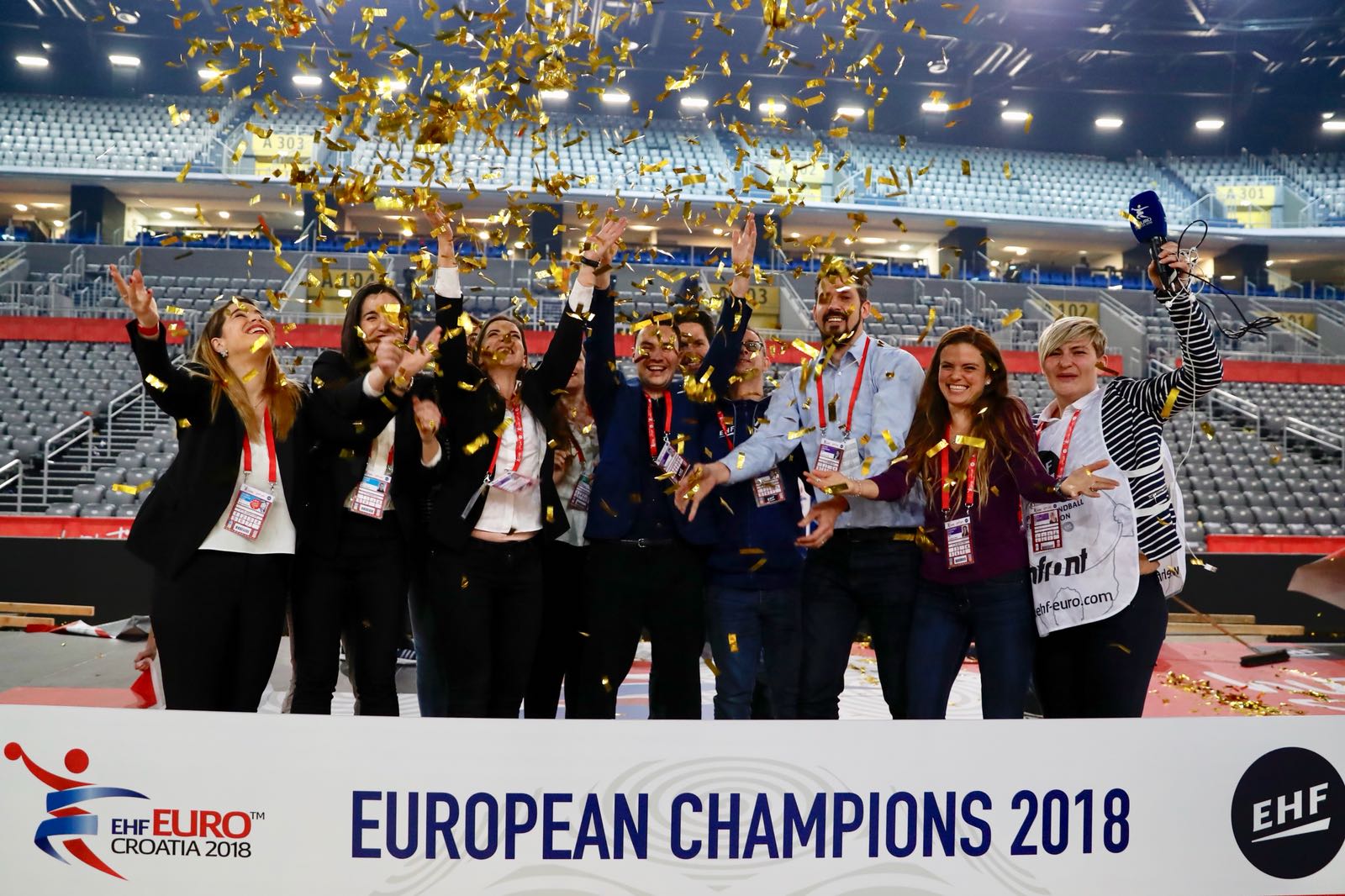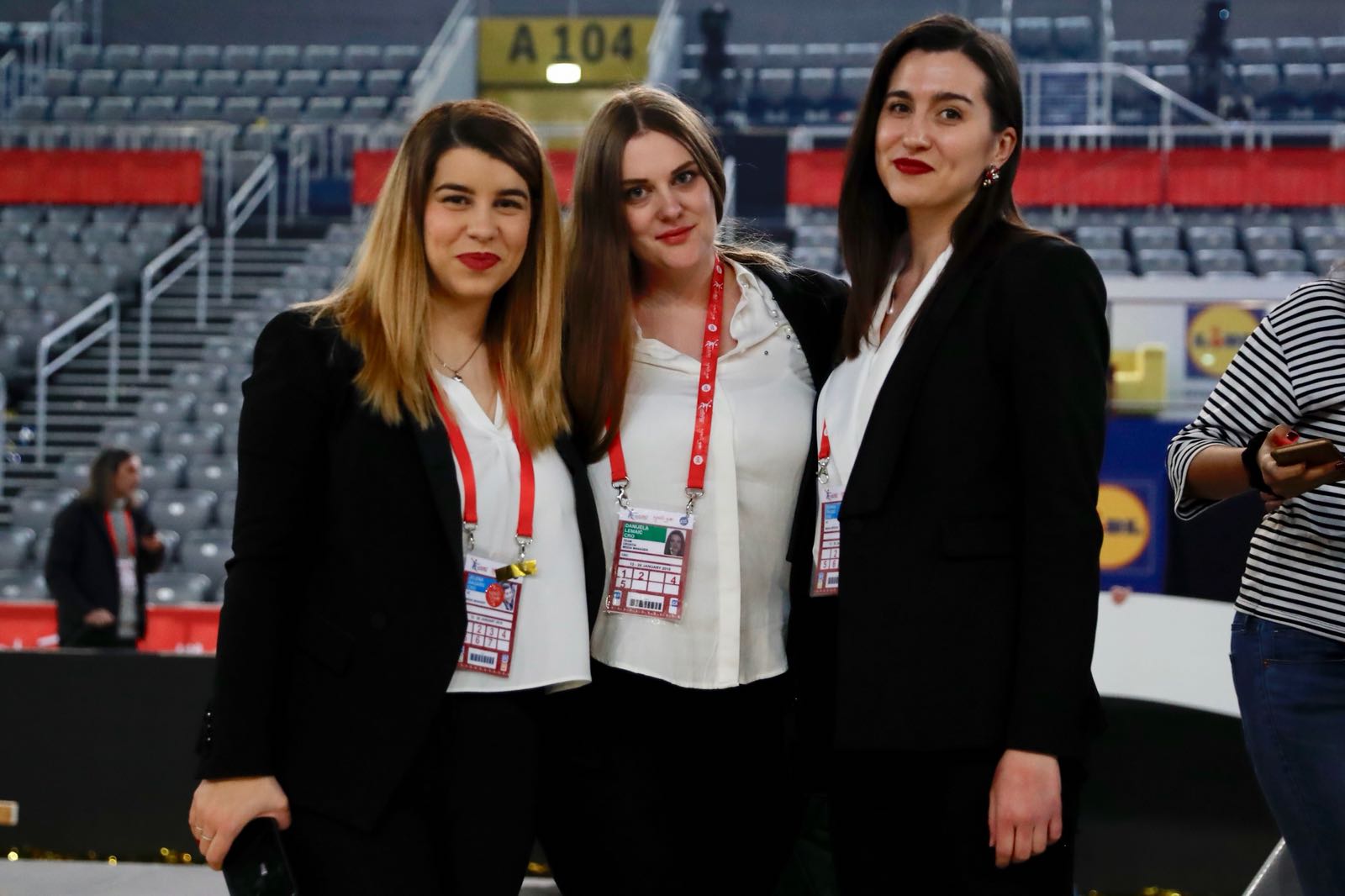
When I was little, I always said I was going to be a teacher. I loved my teacher in primary school and in higher grades, I would often stay in the afternoons to help her out with the first graders. I went on to study literature and teaching. However, as time passed, I decided that a school, or formal education system for that matter, wasn’t the path for me. While I felt guilty about making that decision because in the years before I took every opportunity to ‘prepare’ myself for teaching, time showed me it was a good call.
World of New Opportunities
When I wasn’t sure what I wanted to do and be when I grew up, I started experimenting and exploring what other opportunities there were. I loved photography, I wanted to do something creative, I was writing a lot. That’s when ESN came into the picture… Fast forward, I became a Communication Manager and started learning about social media, PR, and graphic design. Learning by doing, that is; and by trial and error. Since we were a small team, I didn’t really feel the pressure but had a feeling of freedom to create the best I could. Whatever I created was welcomed with encouragement and figurative claps, and it gave me wind beneath my wings.
When Pressure Hits You Up
As I took on more serious and demanding roles, the tasks came with more pressure and higher expectations. At the same time, I put more pressure on myself because I didn’t study social media, public relations, marketing, graphic design or anything else that was a part of my task description. That was the most fruitful soil for imposter syndrome and perfectionism to start growing.
As a Communication Manager, I was taking photos at events, and they needed to be published as soon as possible, while the news was hot. There was no time to overthink editing, colour grading, white balance, etc. When it came to press releases, I planned them weeks ahead. I would write and rewrite paragraphs about events, conferences, and different activities and opportunities that needed to be promoted for weeks on end, until I was happy with how much I weighed every word and decided it was the right one to include. Based on that, I prepared drafts of the press releases that would go out post-event, keeping the similar information and just adding the information about how it really was in the end. It needed to go out fast, because guess what - the news was still hot.
Doing something for the first time and knowing it was going to be put out for everyone to see (and judge, form an opinion about, etc.) was freaking terrifying to me. The extra pressure always came from being painfully aware it was a part of forming and retaining a certain image about the organisation, company, project, or whatever else I was working on.
First Professional Experiences
As someone who never really worked well or could be as productive under time pressure as I would like to be, I struggled for a long time. Then, I got my ‘first real’ job - as a Communication Manager in the professional sports industry. Talk about the pressure and expectations going up! To be fair, it was fun to run around the pitches taking photos, talking to journalists, briefing the players for the press conferences and generally helping to build an image of the national teams, but… I knew the dopamine shots were not going to last so long that I wanted to continue building a career in that industry.
Back to square one. However, not entirely; all of the skills I developed and honed over time helped me with every job and project I took on in the future. The more processes done the fastest I could, while being time pressured, the easier it was to make it an automated action. I used the extra time (outside the setting where there were restrictions, pressure and similar) to reflect, analyse and look into the details that could be improved in order to positively impact the quality of the final product when I got the chance next time.

A Personal Treat
The biggest lesson I took from all those experiences was that a little recognition goes a long way. Telling people I had never done something until that point was constructive because of the encouragement and better management of expectations we both had. We both were clear on what was realistically possible, the time it would take me to improve, find the learning pace, design the learning curve that would work, and recognise the moment when they could give me a clean slate and trust me to do it my way.
With time, my perfectionism got more silent and my productivity level went up. I slowly but surely started taking the pressure off myself and just focused on creating, trying out something different and new, and experimenting with the learning playground I had available without the paralysing fear of making a mistake or asking for help. I was lucky to have laid the foundations of a safe space for myself but I also appreciated the people around me that helped me to co-create it and keep it alive when circumstances weren’t ideal.
I still carry that mindset with me and do my best to nurture it. At my current job, I use everything I have learned before and am actually responsible for creating a space for growth for other people in the world of adult education. Volunteering in ESN, letting myself say ‘yes’ when I wanted to say ‘no’, taking the leap and speaking up before it was the only solution left, made me the professional I am today. In a world where the demands and needs of the labour market rapidly change, where you need to acquire new skills in order to stay a competitive candidate, where there are so many opportunities and formats to learn something new, where you need to stay as flexible as possible and be able to adjust fast, there is so little time for perfectionism. That realisation made me see the other side of it - I can play, I can stay creative, I can be innovative, I can be the first to come up with something that could be cool. It would not be the case if I didn’t just give myself a chance to fail and do it better next time.
Written by Zrinka Trusić

